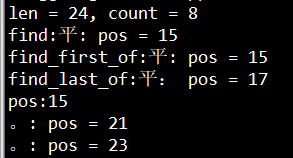- 网页版 123 分身数字人源码搭建,OEM贴牌
18538162800=余
音视频矩阵
在数字化时代的浪潮下,数字人技术蓬勃发展,网页版123分身数字人源码搭建为众多开发者和企业提供了实现个性化数字人应用的可能。本文将深入探讨其技术开发过程,从底层架构到关键技术实现,全方位解析如何构建一个功能强大的网页版数字人系统。技术架构设计前端展示层HTML5与CSS3:构建数字人的可视化界面,实现流畅的动画效果和交互元素。利用CSS3的过渡、动画属性,为数字人的动作、表情变化提供细腻的视觉呈现
- 【软件架构系列:一文读懂数据流体系结构风格】
youngerwang
学习笔记软件系统架构系统架构架构风格数据流体系结构风格
文章目录一文读懂数据流体系结构风格一、数据流体系结构风格是什么?二、数据流体系结构风格的类型(一)批处理风格(二)连续数据流风格三、数据流体系结构风格的特点(一)数据驱动一切(二)模块化与可复用性强(三)易于并行处理四、数据流体系结构风格的优势(一)维护轻松(二)扩展容易(三)性能优化空间大五、数据流体系结构风格的局限性(一)复杂控制逻辑实现困难(二)数据一致性挑战(三)资源消耗问题六、数据流体系
- RRU 软件中 DPD(数字预失真)的全面测试方案
youngerwang
测试验证之禅道移动5G信息与通信测试覆盖率模块测试
RRU软件中DPD(数字预失真)的全面测试方案一、DPD原理在无线通信系统中,功率放大器(PA)用于放大射频信号以满足通信距离和覆盖范围的要求。然而,PA通常具有非线性特性,会导致信号失真,产生谐波和互调产物,影响通信质量。DPD(数字预失真)技术旨在通过对输入到PA的信号进行预失真处理,补偿PA的非线性失真,使经过PA放大后的信号尽可能接近理想的线性信号。其基本原理是通过对PA的输入输出信号进行
- SQL Server数据库表删除分区
MartinYangHJ
SQLServer数据库
在SQLServer中删除分区并将表恢复到非分区状态,需按以下步骤操作:一、合并所有分区1.检查现有分区结构首先确认表的分区方案和分区函数:--查看分区方案SELECT*FROMsys.partition_schemes;--查看分区函数SELECT*FROMsys.partition_functions;2.合并所有分区将所有分区合并为一个,使数据集中在单个分区中:--假设分区函数名为`pf_D
- 六种方法教你将Python源代码打包成exe
xuefeng_210
python开发语言linux
将Python源代码打包成可执行文件(exe)是一种常见的需求,它可以使我们的程序在没有安装Python解释器的环境中运行。在本文中,我们将介绍六种常用的方法来实现这个目标,并详细说明每种方法的使用过程。cx_Freezecx_Freeze是一个用于将Python脚本打包成可执行文件的工具。它可以将Python代码和依赖的库文件一起打包,并生成一个独立的可执行文件。使用cx_Freeze的步骤如下
- Python Excel操作新玩法:从零到高手掌握openpyxl
xuefeng_210
python自动化java
openpyxl是Python中一个强大的第三方库,用于操作Excel文件,它可以读取、写入和修改Excel文件,并且支持Excel文件中的样式、图表等元素。openpyxl使得在Python中处理Excel文件变得非常简单和高效。本文将从入门到精通地介绍openpyxl的使用方法,带你掌握在Python中处理Excel文件的技巧。目录安装和导入创建和保存Excel文件读取Excel文件写入Exc
- 动漫短剧小程序源码|动漫短剧app源码交付
weixin_707762673
小程序php
系统全部开源可二次开发,包部署上线上架,专业的售后团队以及技术服务公司,不转包不外包,完全自研技术团队。今天给大家带来一个超级给力的项目——动漫短剧小程序源码|动漫短剧app源码交付!这不仅是一套完整的解决方案,而且是针对那些想要进入火爆市场领域的朋友们的一把金钥匙!首先说一下背景吧。近年来随着短视频行业的爆发式增长,特别是微短剧、国漫等细分市场的快速崛起,让很多企业和个人看到了新的机会窗口。然而
- Ubuntu18.04切换python3.8版本
波波维琦
pythonlinuxubuntu
安装python3.8sudoaptinstallpython3.8赋予python优先级sudoupdate-alternatives--install/usr/bin/pythonpython/usr/bin/python3.82切换python默认版本sudoupdate-alternatives--configpython选择python3.8的编号,回车赋予python3优先级sudou
- 【数据库】MySQL数据类型decimal详解以及对于float和double两种类型精度问题的探索
明璐花生牛奶
数据库mysql数据库经验分享
引言或许很多同学都很好奇为什么在数据库里要引入decimal这一种数据类型来表示小数?使用float和double这两种数据类型来表示小数为什么不可以?那是因为float和double这两种类型可能会出现精度问题如果本文出现了错误,还请路过的大佬在评论区指出,您的批评是我前进的动力!谢谢!decimal数据类型参考文献:https://cloud.tencent.com/developer/art
- 从零搭建Pytorch模型教程(七)单机多卡和多机多卡训练
AI大模型探索者
pytorch人工智能pythontransformer深度学习ai机器学习
前言本文主要介绍单机多卡训练和多机多卡训练的实现方法和一些注意事项。其中单机多卡训练介绍两种实现方式,一种是DP方式,一种是DDP方式。多机多卡训练主要介绍两种实现方式,一种是通过horovod库,一种是DDP方式。单机单卡训练前面我们已经介绍了一个完整的训练流程,但这里由于要介绍单机多卡和多机多卡训练的代码,为了能更好地理解它们之间的区别,这里先放一个单机单卡也就是一般情况下的代码流程。impo
- 在R中读入h5ad文件,并转换为seurat对象
拜托啦!狮子
r语言前端javascript
太可恶了要么就报错要么就卡住!!!!/(ㄒoㄒ)/~~library(Seurat)library(SeuratDisk)pbmc10kmono=paste0(path,'/pbmc10k/use_data/rna_mono.h5ad')1.Round1##方法1:通过h5Seurat中转#library(SeuratDisk)#Convert(pbmc10kmono,dest="h5seurat
- IPv6网络的可操作安全考虑——RFC9099解析(四)
黑带架构湿
IPv6安全网络安全安全
2.6记录和监控为了在发生安全事件或检测到异常行为的情况下进行取证(forensic)研究,网络运营商应记录多个信息片段。在某些情况下,这需要通过网络管理站对设备进行频繁的轮询。日志包括但不限于:在可用时,使用网络的所有应用程序(包括用户空间和内核空间)的日志(例如,网络运营商管理的web服务器;IPFIX数据【RFC7011】;SNMPMIBs或来自RESTCONF/NETCONF的YANG数据
- PyTorch基础知识讲解(一)完整训练流程示例
苏雨流丰
机器学习pytorch人工智能python机器学习深度学习
文章目录Tutorial1.数据处理2.网络模型定义3.损失函数、模型优化、模型训练、模型评价4.模型保存、模型加载、模型推理Tutorial大多数机器学习工作流程涉及处理数据、创建模型、优化模型参数和保存训练好的模型。本教程向你介绍一个用PyTorch实现的完整的ML工作流程,并提供链接来了解这些概念中的每一个。我们将使用FashionMNIST数据集来训练一个神经网络,预测输入图像是否属于以下
- 【半导体】:半导体制造工厂的数字化、智能化的新时代
不爱原创的Yoga
制造
半导体制造的背景:半导体产业是现代电子技术的基础,其发展深刻影响了人们的生活、通信、信息技术等各个领域。半导体材料具有介于导体和绝缘体之间的导电特性,因而被称为“半导体”。半导体制造是将这些半导体材料制成芯片,用于制造集成电路(IC)的过程。半导体产业的发展源于二十世纪中叶,随着晶体管的发明和集成电路的诞生,半导体技术逐渐成为电子工业的核心。从最早的晶体管到今天的微处理器和存储芯片,半导体制造在信
- 【Pandas】pandas Series plot.bar
liuweidong0802
PandasSeriespandas信息可视化
Pandas2.2SeriesPlotting方法描述Series.plot([kind,ax,figsize,…])用于绘制Series对象的数据可视化图表Series.plot.area([x,y,stacked])用于绘制堆叠面积图(StackedAreaPlot)Series.plot.bar([x,y])用于绘制垂直条形图(VerticalBarPlot)pandas.Series.pl
- GPU计算的历史与CUDA编程入门
己见明
GPU计算CUDAC数据并行性CUDA程序结构向量加法内核
GPU计算的历史与CUDA编程入门背景简介GPU计算的历史可以追溯到早期的并行计算研究,如今已发展成为计算机科学中的一个重要分支。本文将探讨GPU计算的发展史,重点分析《ComputerGraphics:PrinciplesandPractice》等关键文献,以及CUDAC编程模型的引入及其对现代软件开发的影响。历史回顾回顾历史,GPU计算的发展始于1986年Hillis与Steele在《Comm
- 稳定运行的以Microsoft Azure Cosmos DB数据库为数据源和目标的ETL性能变差时提高性能方法和步骤
weixin_30777913
microsoftazure数据仓库etl性能优化
在以MicrosoftAzureCosmosDB数据库为数据源和目标的ETL(提取、转换、加载)过程中,性能变差时,可能有多种原因。提高以MicrosoftAzureCosmosDB为数据源和目标的ETL性能,通常涉及数据库配置、查询优化、并发执行、数据传输优化和使用CosmosDB特性等多个方面。通过以下方法和步骤,可以显著改善ETL性能:增加RU设置、优化分区策略;优化查询、使用批量操作;提高
- DJANGO 中间件的白名单配置
换个网名有点难
djangopython
在处理白名单内的多个Apps的URL链接时,可以采用以下几种方法来简化白名单的配置:1.使用reverse动态获取URL如果你在urls.py中为每个App的URL定义了名称(name参数),可以使用reverse函数动态获取这些URL,而不是硬编码路径。这样可以避免手动维护大量的路径字符串。Python复制fromdjango.urlsimportreverseclassLoginRequire
- Systemd 是 Linux 系统的 核心服务管理工具,负责管理系统的启动、服务生命周期和资源分配
潇锐killer
linux运维服务器
Systemd是Linux系统的核心服务管理工具,负责管理系统的启动、服务生命周期和资源分配。它替代了传统的SysVinit系统,提供更高效、统一的服务管理方式。以下是它的核心作用:一、核心功能功能作用说明服务生命周期管理启动、停止、重启服务(如Nginx/MySQL)依赖关系管理自动处理服务之间的依赖关系(例如:先启动数据库再启动Web服务)开机自启管理通过enable/
- MySQL Connector / Python
weixin_30369087
MySQLConnector/Python允许Python程序使用符合Python数据库API规范v2.0(PEP249)的API访问MySQL数据库。MySQLConnector/Python包括对以下内容的支持:几乎所有MySQLServer提供的功能都包括MySQLServer版本5.7。Connector/Python8.0也支持XDevAPI。有关使用XDevAPI的MySQLConne
- 机器学习中的贝叶斯网络:如何构建高效的风险预测模型
AI天才研究院
DeepSeekR1&大数据AI人工智能大模型自然语言处理人工智能语言模型编程实践开发语言架构设计
作者:禅与计算机程序设计艺术文章目录机器学习中的贝叶斯网络:如何构建高效的风险预测模型1.背景介绍2.基本概念术语说明2.1马尔科夫随机场(MarkovRandomField)2.2条件随机场(ConditionalRandomField,CRF)2.3变量elimination算法2.4贝叶斯网络3.核心算法原理和具体操作步骤以及数学公式讲解3.1原理介绍1.贝叶斯网络基础2.贝叶斯网络构建风险
- 入门 Canvas:Web 绘图的强大工具
Hopebearer_
前端es6javascriptcanva可画
文章目录入门Canvas:Web绘图的强大工具一、Canvas简介二、Canvas的基本用法(一)绘制基本图形(二)绘制文本三、Canvas的应用场景(一)数据可视化(二)游戏开发(三)图像编辑四、Canvas的动画效果五、Canvas的优势与局限性(一)优势(二)局限性六、总结入门Canvas:Web绘图的强大工具在Web开发的广阔天地中,为了满足用户对丰富、交互性强的体验的不断追求,前端技术持
- 【机会约束、鲁棒优化】机会约束和鲁棒优化研究优化【ccDCOPF】研究(Matlab代码实现)
科研_G.E.M.
matlab概率论开发语言
个人主页欢迎来到本博客❤️❤️博主优势:博客内容尽量做到思维缜密,逻辑清晰,为了方便读者。⛳️座右铭:行百里者,半于九十。本文目录如下:目录1概述机会约束、鲁棒优化与ccDCOPF研究综述1.机会约束规划(ChanceConstrainedProgramming,CCP)在电力系统中的应用2.鲁棒优化(RobustOptimization,RO)在电力系统中的应用3.机会约束与鲁棒优化的协同方法
- yolov8实战第七天——pyqt5-yolov8实现车牌识别系统(参考论文(约7000字)+环境配置+完整部署代码+代码使用说明+训练好的模型)
学术菜鸟小晨
yolov8实战100天pythonYOLOpyqt5车牌识别毕业设计论文
基于pyqt5-yolov8实现车牌识别系统,包括图片车牌识别,视频车牌识别,视频流车牌识别。效果展示(图片检测,检测到的内容添加到历史记录):效果展示(视频检测,视频车辆只会添加一条记录,下文更多实际应用中的优化策略):新增功能:批量图片检测(2024/5/7更新代码)
- MATLAB程序代编液压系统电机非线性滑膜伺服模糊控制simulink仿真
matlabgoodboy
matlab开发语言
在MATLAB中设计和仿真一个液压系统电机的非线性滑模伺服模糊控制系统,可以通过Simulink来实现。以下是一个大致的步骤指南,帮助你完成这个任务。由于这是一个复杂的系统,我们需要逐步分解问题并构建模型。1.系统描述假设我们有一个液压系统,其电机通过某种方式(例如泵)控制液压缸。目标是设计一个控制器,使得液压缸的位置或速度能够跟踪期望的轨迹。我们将使用滑模控制(SlidingModeContro
- 进制转换(R转十)(1290. 二进制转换十进制、1292. 十六进制转十进制、1291. 八进制转十进制、1405. 小丽找潜在的素数)
是帅帅的少年
东方博宜OJ题库解析算法c++数据结构
题单地址:题单中心-东方博宜OJ这里以二进制转十进制为例(按位加权求和法)1290.二进制转换十进制问题描述请将一个25位以内的2进制正整数转换为1010进制!输入一个25位以内的二进制正整数。输出该数对应的十进制。样例输入111111111111111111111111输出16777215解析:按位加权(2^n)求和法。#includeusingnamespacestd;intmain(){st
- 基于交替方向乘法(ADMM)的PAPR约束下传输波束成形器设计的方法研究(Matlab代码实现)
创新优化代码学习
matlab前端算法
欢迎来到本博客❤️❤️博主优势:博客内容尽量做到思维缜密,逻辑清晰,为了方便读者。⛳️座右铭:行百里者,半于九十。本文目录如下:目录1概述2运行结果3参考文献4Matlab代码、数据、文章下载1概述上一次介绍的是用Python代码编程的,这次用Matlab代码实现。回顾见:基于交替方向乘法(ADMM)的PAPR约束下传输波束成形器设计的方法研究(Python代码实现)摘要本文研究了峰值平均功率比(
- kafka 的 message 包括哪些信息
weixin-80213251
javawebjavakafkahadoop
一个Kafka的Message由一个固定长度的header和一个变长的消息体body组成header部分由一个字节的magic(文件格式)和四个字节的CRC32(用于判断body消息体是否正常)构成。当magic的值为1的时候,会在magic和crc32之间多一个字节的数据:attributes(保存一些相关属性,比如是否压缩、压缩格式等等);如果magic的值为0,那么不存在attributes
- java笔试题以及答案详解
weixin-80213251
javaweb类javaclassjdk
一、单项选择题1.Java是从()语言改进重新设计。A.AdaB.C++C.PasacalD.BASIC答案:B2.下列语句哪一个正确()A.Java程序经编译后会产生machinecodeB.Java程序经编译后会产生bytecodeC.Java程序经编译后会产生DLLD.以上都不正确答案:B3.下列说法正确的选项有()A.class中的constructor不可省略B.constructor必
- Linux系统中安装各种常用中间件
Vic2334
运维linux中间件运维
Linux安装docker安装docker定制软件源yuminstall-yyum-utilsdevice-mapper-persistent-datalvm2yum-config-manager--add-repohttp://mirrors.aliyun.com/docker-ce/linux/centos/docker-ce.repo安装最新版dockeryumlistdocker-ce--
- PHP,安卓,UI,java,linux视频教程合集
cocos2d-x小菜
javaUIlinuxPHPandroid
╔-----------------------------------╗┆
- zookeeper admin 笔记
braveCS
zookeeper
Required Software
1) JDK>=1.6
2)推荐使用ensemble的ZooKeeper(至少3台),并run on separate machines
3)在Yahoo!,zk配置在特定的RHEL boxes里,2个cpu,2G内存,80G硬盘
数据和日志目录
1)数据目录里的文件是zk节点的持久化备份,包括快照和事务日
- Spring配置多个连接池
easterfly
spring
项目中需要同时连接多个数据库的时候,如何才能在需要用到哪个数据库就连接哪个数据库呢?
Spring中有关于dataSource的配置:
<bean id="dataSource" class="com.mchange.v2.c3p0.ComboPooledDataSource"
&nb
- Mysql
171815164
mysql
例如,你想myuser使用mypassword从任何主机连接到mysql服务器的话。
GRANT ALL PRIVILEGES ON *.* TO 'myuser'@'%'IDENTIFIED BY 'mypassword' WI
TH GRANT OPTION;
如果你想允许用户myuser从ip为192.168.1.6的主机连接到mysql服务器,并使用mypassword作
- CommonDAO(公共/基础DAO)
g21121
DAO
好久没有更新博客了,最近一段时间工作比较忙,所以请见谅,无论你是爱看呢还是爱看呢还是爱看呢,总之或许对你有些帮助。
DAO(Data Access Object)是一个数据访问(顾名思义就是与数据库打交道)接口,DAO一般在业
- 直言有讳
永夜-极光
感悟随笔
1.转载地址:http://blog.csdn.net/jasonblog/article/details/10813313
精华:
“直言有讳”是阿里巴巴提倡的一种观念,而我在此之前并没有很深刻的认识。为什么呢?就好比是读书时候做阅读理解,我喜欢我自己的解读,并不喜欢老师给的意思。在这里也是。我自己坚持的原则是互相尊重,我觉得阿里巴巴很多价值观其实是基本的做人
- 安装CentOS 7 和Win 7后,Win7 引导丢失
随便小屋
centos
一般安装双系统的顺序是先装Win7,然后在安装CentOS,这样CentOS可以引导WIN 7启动。但安装CentOS7后,却找不到Win7 的引导,稍微修改一点东西即可。
一、首先具有root 的权限。
即进入Terminal后输入命令su,然后输入密码即可
二、利用vim编辑器打开/boot/grub2/grub.cfg文件进行修改
v
- Oracle备份与恢复案例
aijuans
oracle
Oracle备份与恢复案例
一. 理解什么是数据库恢复当我们使用一个数据库时,总希望数据库的内容是可靠的、正确的,但由于计算机系统的故障(硬件故障、软件故障、网络故障、进程故障和系统故障)影响数据库系统的操作,影响数据库中数据的正确性,甚至破坏数据库,使数据库中全部或部分数据丢失。因此当发生上述故障后,希望能重构这个完整的数据库,该处理称为数据库恢复。恢复过程大致可以分为复原(Restore)与
- JavaEE开源快速开发平台G4Studio v5.0发布
無為子
我非常高兴地宣布,今天我们最新的JavaEE开源快速开发平台G4Studio_V5.0版本已经正式发布。
访问G4Studio网站
http://www.g4it.org
2013-04-06 发布G4Studio_V5.0版本
功能新增
(1). 新增了调用Oracle存储过程返回游标,并将游标映射为Java List集合对象的标
- Oracle显示根据高考分数模拟录取
百合不是茶
PL/SQL编程oracle例子模拟高考录取学习交流
题目要求:
1,创建student表和result表
2,pl/sql对学生的成绩数据进行处理
3,处理的逻辑是根据每门专业课的最低分线和总分的最低分数线自动的将录取和落选
1,创建student表,和result表
学生信息表;
create table student(
student_id number primary key,--学生id
- 优秀的领导与差劲的领导
bijian1013
领导管理团队
责任
优秀的领导:优秀的领导总是对他所负责的项目担负起责任。如果项目不幸失败了,那么他知道该受责备的人是他自己,并且敢于承认错误。
差劲的领导:差劲的领导觉得这不是他的问题,因此他会想方设法证明是他的团队不行,或是将责任归咎于团队中他不喜欢的那几个成员身上。
努力工作
优秀的领导:团队领导应该是团队成员的榜样。至少,他应该与团队中的其他成员一样努力工作。这仅仅因为他
- js函数在浏览器下的兼容
Bill_chen
jquery浏览器IEDWRext
做前端开发的工程师,少不了要用FF进行测试,纯js函数在不同浏览器下,名称也可能不同。对于IE6和FF,取得下一结点的函数就不尽相同:
IE6:node.nextSibling,对于FF是不能识别的;
FF:node.nextElementSibling,对于IE是不能识别的;
兼容解决方式:var Div = node.nextSibl
- 【JVM四】老年代垃圾回收:吞吐量垃圾收集器(Throughput GC)
bit1129
垃圾回收
吞吐量与用户线程暂停时间
衡量垃圾回收算法优劣的指标有两个:
吞吐量越高,则算法越好
暂停时间越短,则算法越好
首先说明吞吐量和暂停时间的含义。
垃圾回收时,JVM会启动几个特定的GC线程来完成垃圾回收的任务,这些GC线程与应用的用户线程产生竞争关系,共同竞争处理器资源以及CPU的执行时间。GC线程不会对用户带来的任何价值,因此,好的GC应该占
- J2EE监听器和过滤器基础
白糖_
J2EE
Servlet程序由Servlet,Filter和Listener组成,其中监听器用来监听Servlet容器上下文。
监听器通常分三类:基于Servlet上下文的ServletContex监听,基于会话的HttpSession监听和基于请求的ServletRequest监听。
ServletContex监听器
ServletContex又叫application
- 博弈AngularJS讲义(16) - 提供者
boyitech
jsAngularJSapiAngularProvider
Angular框架提供了强大的依赖注入机制,这一切都是有注入器(injector)完成. 注入器会自动实例化服务组件和符合Angular API规则的特殊对象,例如控制器,指令,过滤器动画等。
那注入器怎么知道如何去创建这些特殊的对象呢? Angular提供了5种方式让注入器创建对象,其中最基础的方式就是提供者(provider), 其余四种方式(Value, Fac
- java-写一函数f(a,b),它带有两个字符串参数并返回一串字符,该字符串只包含在两个串中都有的并按照在a中的顺序。
bylijinnan
java
public class CommonSubSequence {
/**
* 题目:写一函数f(a,b),它带有两个字符串参数并返回一串字符,该字符串只包含在两个串中都有的并按照在a中的顺序。
* 写一个版本算法复杂度O(N^2)和一个O(N) 。
*
* O(N^2):对于a中的每个字符,遍历b中的每个字符,如果相同,则拷贝到新字符串中。
* O(
- sqlserver 2000 无法验证产品密钥
Chen.H
sqlwindowsSQL ServerMicrosoft
在 Service Pack 4 (SP 4), 是运行 Microsoft Windows Server 2003、 Microsoft Windows Storage Server 2003 或 Microsoft Windows 2000 服务器上您尝试安装 Microsoft SQL Server 2000 通过卷许可协议 (VLA) 媒体。 这样做, 收到以下错误信息CD KEY的 SQ
- [新概念武器]气象战争
comsci
气象战争的发动者必须是拥有发射深空航天器能力的国家或者组织....
原因如下:
地球上的气候变化和大气层中的云层涡旋场有密切的关系,而维持一个在大气层某个层次
- oracle 中 rollup、cube、grouping 使用详解
daizj
oraclegroupingrollupcube
oracle 中 rollup、cube、grouping 使用详解 -- 使用oracle 样例表演示 转自namesliu
-- 使用oracle 的样列库,演示 rollup, cube, grouping 的用法与使用场景
--- ROLLUP , 为了理解分组的成员数量,我增加了 分组的计数 COUNT(SAL)
- 技术资料汇总分享
Dead_knight
技术资料汇总 分享
本人汇总的技术资料,分享出来,希望对大家有用。
http://pan.baidu.com/s/1jGr56uE
资料主要包含:
Workflow->工作流相关理论、框架(OSWorkflow、JBPM、Activiti、fireflow...)
Security->java安全相关资料(SSL、SSO、SpringSecurity、Shiro、JAAS...)
Ser
- 初一下学期难记忆单词背诵第一课
dcj3sjt126com
englishword
could 能够
minute 分钟
Tuesday 星期二
February 二月
eighteenth 第十八
listen 听
careful 小心的,仔细的
short 短的
heavy 重的
empty 空的
certainly 当然
carry 携带;搬运
tape 磁带
basket 蓝子
bottle 瓶
juice 汁,果汁
head 头;头部
- 截取视图的图片, 然后分享出去
dcj3sjt126com
OSObjective-C
OS 7 has a new method that allows you to draw a view hierarchy into the current graphics context. This can be used to get an UIImage very fast.
I implemented a category method on UIView to get the vi
- MySql重置密码
fanxiaolong
MySql重置密码
方法一:
在my.ini的[mysqld]字段加入:
skip-grant-tables
重启mysql服务,这时的mysql不需要密码即可登录数据库
然后进入mysql
mysql>use mysql;
mysql>更新 user set password=password('新密码') WHERE User='root';
mysq
- Ehcache(03)——Ehcache中储存缓存的方式
234390216
ehcacheMemoryStoreDiskStore存储驱除策略
Ehcache中储存缓存的方式
目录
1 堆内存(MemoryStore)
1.1 指定可用内存
1.2 驱除策略
1.3 元素过期
2 &nbs
- spring mvc中的@propertysource
jackyrong
spring mvc
在spring mvc中,在配置文件中的东西,可以在java代码中通过注解进行读取了:
@PropertySource 在spring 3.1中开始引入
比如有配置文件
config.properties
mongodb.url=1.2.3.4
mongodb.db=hello
则代码中
@PropertySource(&
- 重学单例模式
lanqiu17
单例Singleton模式
最近在重新学习设计模式,感觉对模式理解更加深刻。觉得有必要记下来。
第一个学的就是单例模式,单例模式估计是最好理解的模式了。它的作用就是防止外部创建实例,保证只有一个实例。
单例模式的常用实现方式有两种,就人们熟知的饱汉式与饥汉式,具体就不多说了。这里说下其他的实现方式
静态内部类方式:
package test.pattern.singleton.statics;
publ
- .NET开源核心运行时,且行且珍惜
netcome
java.net开源
背景
2014年11月12日,ASP.NET之父、微软云计算与企业级产品工程部执行副总裁Scott Guthrie,在Connect全球开发者在线会议上宣布,微软将开源全部.NET核心运行时,并将.NET 扩展为可在 Linux 和 Mac OS 平台上运行。.NET核心运行时将基于MIT开源许可协议发布,其中将包括执行.NET代码所需的一切项目——CLR、JIT编译器、垃圾收集器(GC)和核心
- 使用oscahe缓存技术减少与数据库的频繁交互
Everyday都不同
Web高并发oscahe缓存
此前一直不知道缓存的具体实现,只知道是把数据存储在内存中,以便下次直接从内存中读取。对于缓存的使用也没有概念,觉得缓存技术是一个比较”神秘陌生“的领域。但最近要用到缓存技术,发现还是很有必要一探究竟的。
缓存技术使用背景:一般来说,对于web项目,如果我们要什么数据直接jdbc查库好了,但是在遇到高并发的情形下,不可能每一次都是去查数据库,因为这样在高并发的情形下显得不太合理——
- Spring+Mybatis 手动控制事务
toknowme
mybatis
@Override
public boolean testDelete(String jobCode) throws Exception {
boolean flag = false;
&nbs
- 菜鸟级的android程序员面试时候需要掌握的知识点
xp9802
android
熟悉Android开发架构和API调用
掌握APP适应不同型号手机屏幕开发技巧
熟悉Android下的数据存储
熟练Android Debug Bridge Tool
熟练Eclipse/ADT及相关工具
熟悉Android框架原理及Activity生命周期
熟练进行Android UI布局
熟练使用SQLite数据库;
熟悉Android下网络通信机制,S
